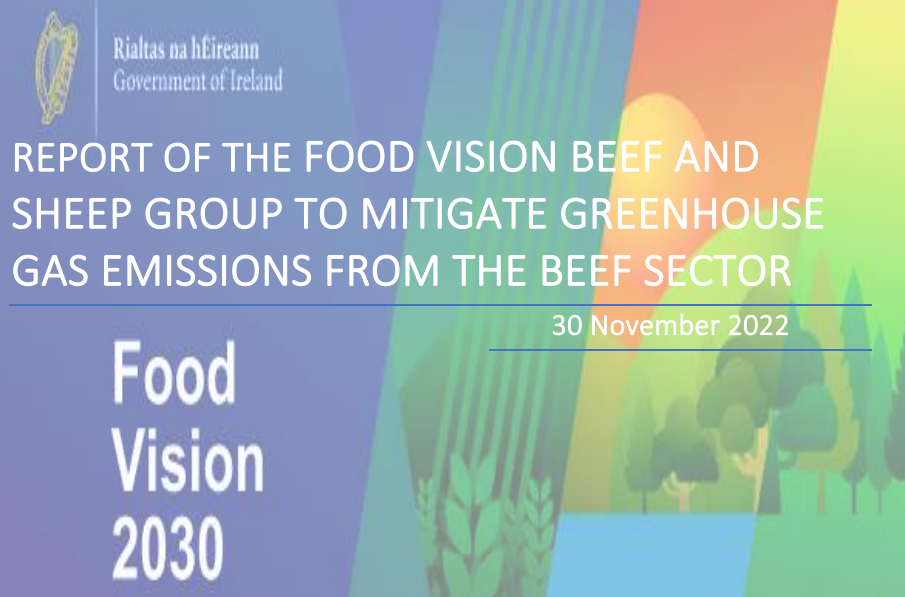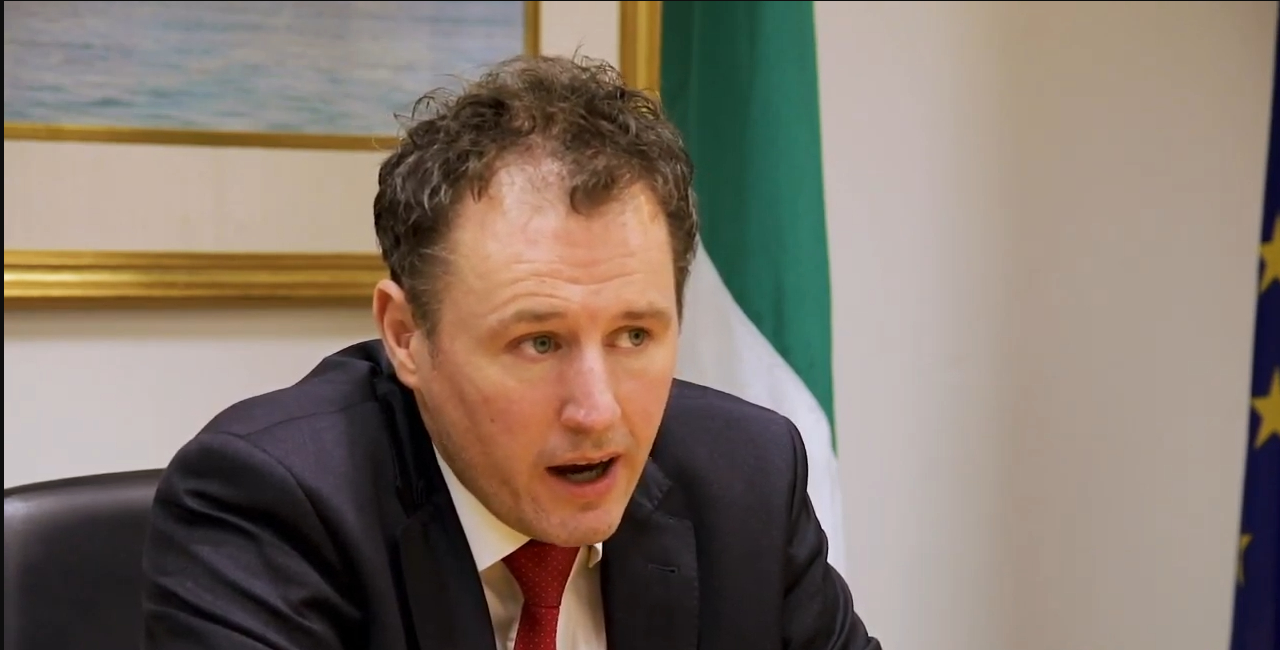The Minister for Agriculture, Food and Marine has been urged to “put money on the table” in relation to proposals set out in the Food Vision Beef and Sheep Group final report and to “really listen to the concerns” of farmers.
Minister Charlie McConalogue received the report nearly a week ago and at the time said he would study it carefully “before deciding on next steps”.
Several farm organisations are now seeking “urgent” face-to-face meetings with the minister to discuss the controversial report.
According to some farm organisations they are frustrated about the lack of detail and communication on how the recommendations contained in the report would be supported by government.
The absence of a clear funding strategy to support the recommendations in the report, particularly in relation to the proposed suckler cow exit and reduction schemes, is a major issue of contention for farming organisations and their members.

The Food Vision Beef and Sheep Group identified nine direct measures to “mitigate” greenhouse gas emissions from the beef sector.
These included reducing slaughter age, reducing nitrous oxide emissions, adopting new breeding practices, and two schemes to reduce and remove suckler cows.
Food Vision Beef and Sheep Group stakeholders
A number of the stakeholders who participated in the Food Vision Beef and Sheep Group have now distanced themselves from the final report and in the case of the Irish Natura and Hill Farmers Association (INHFA) withdrawn from the process entirely.
Other stakeholders including Meat Industry Ireland (MII) have said they will not accept the report, while the Irish Cattle and Sheep Farmers’ Association (ICSA) has highlighted its concerns particularly in relation to the suckler cow exit and reduction schemes.
The Irish Farmers’ Association (IFA) has also said it will not sign up to the report.
IFA president Tim Cullinan said one of the key problems with the Food Vision Beef and Sheep Group report lies with the Department of Agriculture, Food and the Marine’s (DAFM’s) approach to it from the very start.
“Basically this group was put together and really all of the proposals put forward for the group to consider came from the department or the minister himself,” the IFA president said.
“This wasn’t really about the stakeholders in the group coming together and bringing their own proposals.
“For instance the IFA has its own proposals on climate action but we really didn’t get a chance to put those forward in this group.
“It is very hard to move forward on this because it is really about what the department wants and it is not about what the stakeholders have proposed,” he added.
Cullinan said if the recommendations outlined in the Food Vision report are adopted by Minister McConalogue and he moves forward on them then what this signals is “a drastic change to farmers’ livelihoods”.
“This is not about farmers not wanting to play their part because farmers are very committed to playing their part in reducing greenhouse gas emissions,” he said.
“But if we take the ordinary consumer they’re perhaps being asked to make a lifestyle change around Ireland’s climate targets.
“But the ask of farmers is about a drastic change to their livelihoods and we need proper negotiations around funding, about how we can protect farmers in the future.
“What is very important here is that if we look at the beef sector and we look at the recommendations contained in the report it is all about cutting production and reducing suckler cows in Ireland,” Cullinan added.
He said the IFA did not support that reduction and warned that if this recommendation was adopted by the minister it would have a negative impact on the “social fabric of rural Ireland, adding:
“If there is reduction then its going to affect everyone living in rural Ireland, the beef sector supports thousands of families and jobs, what happens to these towns and villages because of the negative impact of some of these recommendations?”
He said it is vital that the minister for agriculture details specifically what financial support will be available to farmers as part of the government’s strategy to reduce emissions associated with the beef sector.
“We need proper negotiations around funding and what the plan really is for farmers,” Cullinan added.
